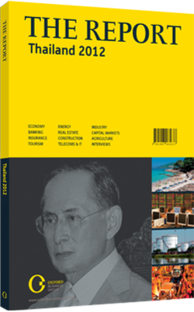OBG talks to Apichart Chutrakul, CEO, Sansiri

Interview: Apichart Chutrakul
Do you believe the development of Thailand’s residential property market is sustainable?
APICHART CHURTAKUL: Projects from the top real estate developers sell out very quickly nowadays. No matter where in Bangkok these projects are located, there is tremendous demand. The vast majority of demand in Bangkok is Thai, and financed by mortgages. The efforts by the Bank of Thailand to curb mortgages at 90% of the value of a unit have not had any noticeable impact on property sales or indeed prices. Foreign demand in Bangkok is notoriously volatile because some have doubts about the rules on buying property in Thailand.
That said, regulations on condo purchases by foreigners are clear; they are allowed to do so. There is not much speculation in the market, because the fundamentals are driving demand and there is significant latent demand from Thai consumers.
To what extent do you expect consolidation in the property development market?
APICHART: The market is consolidating at the moment because smaller developers simply cannot compete with the bigger players. The top seven firms control about 70% of the Bangkok real estate market.
Small developers will just stop developing projects, so we may not see mergers and acquisitions but instead a process of natural selection. Moreover, there is a flight to quality because clients typically prefer to purchase units from larger-sized developers.
With costs increasing, how can property developers maintain their profit margins?
APICHART: One way in which developers are trying to control their construction costs is by building their own precast housing factories. For instance, we at Sansiri are building a precast housing unit in Pathum Thani. This allows us to rely less on skilled labour for construction, which enables us to increase our margins. Using precast housing also allows us to shorten the time to market – it typically takes 6-8 months to build a normal house, whereas it can take as little as 2 months to finish building a precast housing unit.
What do you think of government efforts to promote low-cost housing developments?
APICHART: The Board of Investment is already proposing tax incentives for social housing projects, which is a welcome encouragement to developers. Property developers want to build more units, and we are already working on as many as possible because there is simply so much demand. Thais want to buy their own homes, but it is a question of having the means to do so. The government recognises that real estate has a multiplier effect on the economy and is acting to increase people’s disposable income by about 30% on average. I think that by the end of 2012 we will see these wage increases work their way through the economy. We might suggest the government raise the price point for low-cost housing by approximately 10%, up from about BT1m ($31,900) at the present time.
What scope is there for Bangkok-focused developers to expand operations nationwide?
APICHART: We are seeing some developers increasingly expand into provinces beyond Bangkok and the typical resort markets. But as most major real estate companies are at or near capacity in the capital, the process can be slow. Thailand is roughly at full employment, so it is very difficult to find people to execute the jobs needed for expansion. Nonetheless, developers are testing markets such as Hua Hin and Phuket, and considering expanding to places like Chiang Mai.
How well adapted are sources of financing for the needs of major developers?
APICHART: We are satisfied that there is adequate financial backing, with commercial banks eager to lend to large firms, while shying away from smaller players. All big developers made record earnings in the first half
You have reached the limit of premium articles you can view for free.
Choose from the options below to purchase print or digital editions of our Reports. You can also purchase a website subscription giving you unlimited access to all of our Reports online for 12 months.
If you have already purchased this Report or have a website subscription, please login to continue.

